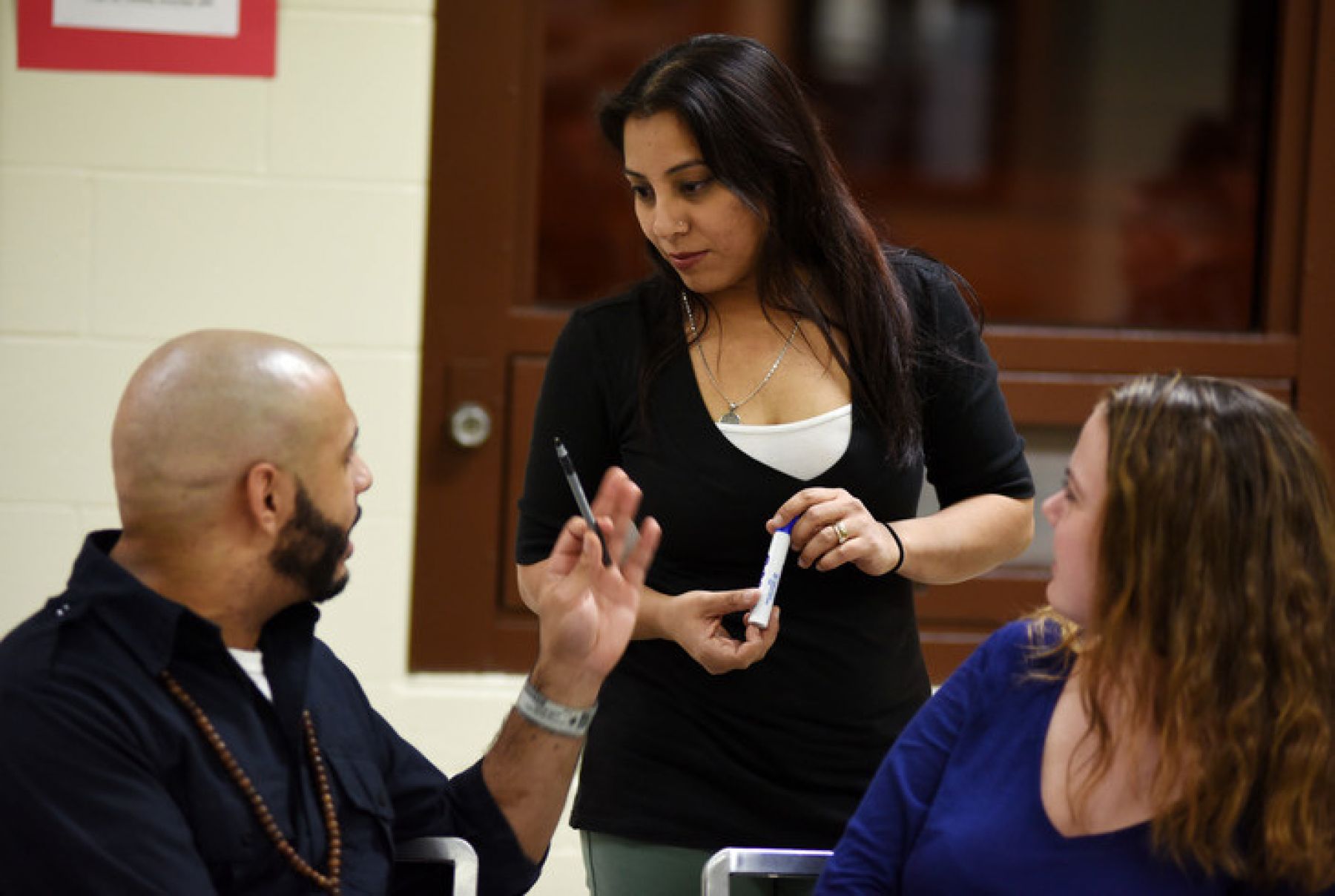Prison Journalism Program launches crowdfunding campaign
Effort sets $10,000 goal to compensate writers for their work

Shaheen Pasha believes in the power of words, and she’s not alone.
Pasha, an assistant teaching professor in the Donald P. Bellisario College of Communications and a cofounder of the Prison Journalism Program, believes giving voice to people who are incarcerated — more than two million people in the United States — can help change the criminal justice system.
“Prison education is proven to reduce recidivism. By providing journalism skills, which emphasize writing, critical thinking and social skills, we believe we can create a practical foundation that incarcerated men and women can use upon reentry while also becoming thought leaders in criminal justice,” Pasha said.
Under the guidance of Pasha and cofounder Yukari Kane, the Prison Journalism Program at Penn State works with correctional facilities, universities, foundations, nonprofits and community organizations to establish and promote prison journalism. They are creating a universal curriculum, a textbook and a teacher’s kit to teach journalistic writing classes in prisons nationwide.
That effort complements an established content platform that publishes stories and essays by incarcerated writers and journalists as well as those around them. Program leaders also advise and train academic professionals, volunteer teachers and incarcerated teachers through seminars and coaching programs.
This year, the Prison Journalism Program plans to build on its success by launching a crowdfunding campaign to provide honorariums for writers.
Pasha and Kane hope to raise $10,000 to compensate writers for at least 200 stories that will be featured in the publication. They believe compensating writers for their insightful and thought-provoking stories can help break stereotypes, bring more transparency to the closed world of prisons and, ultimately, drive change.
Supporters may make gifts online to help the effort. In addition, a donor has agreed to match all gifts raised during the crowdfunding effort — which runs until Sept. 12 — up to $10,000 to bolster the program.
Before joining the Penn State faculty, Pasha was an assistant professor at the University of Massachusetts, where she launched an immersive explanatory journalism class at the Hampshire County Jail, bringing incarcerated and UMass students together to learn. Pasha was awarded the Knight Nieman Visiting Fellowship to expand her work teaching journalism behind bars. She is a veteran journalist with over 20 years of experience at outlets such as Thomson Reuters, CNNMoney and Dow Jones/WSJ.
Kane, who was selected as a 2021-22 Reynolds Journalism Institute Fellow, is an author, educator and veteran journalist with 20 years of experience. She was a staff writer and foreign correspondent for The Wall Street Journal and Reuters, and her book “Haunted Empire: Apple After Steve Jobs” (Harpers Business) was a best-seller and an Amazon Editor's Pick that was translated into seven languages. She is an adjunct lecturer at Northwestern University, where she has taught journalism fundamentals, investigative reporting and the Medill Justice Project. At San Quentin News, where she still serves as an advisor, she developed a curriculum and reader for prison journalism. She was previously a lecturer at University of California, Berkeley’s Graduate School of Journalism.

